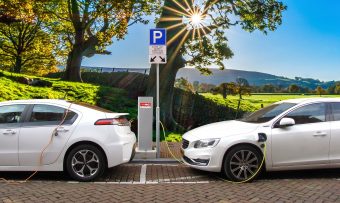
Picture this: you’re riding in an autonomous vehicle, with no steering wheel. It’s the future! You can sit in the back and sleep, do work, watch a movie, or spend time with loved ones. The car’s computer is taking care of everything, but like us, computers have needs. The computer’s backup computer also has the same needs. The big one is electricity. No electrons flowing, and even the best computers are just paperweights. With your life on the line, you don’t want that computer to suddenly lose power.
Today, a serious electrical issue in the vehicle probably won’t kill you. Even if you completely lose power, you can coast the car onto the shoulder or into a parking lot to safely wait for a two truck in most cases. But that’s only possible because your brain keeps working and you can steer the car to a safe place, apply the brakes, and come to a safe stop.
Computers driving? Not so much. An electrical short would leave the car not only without power, but 100 percent out of any control.
That’s why researchers from the Fraunhofer Institute for Reliability and Microintegration IZM have joined with partners on the HiBord project. The goal? To develop an electronic disconnect device that is able to isolate electrical faults, and fast. This module has already been successfully tested in a BMW i3.
Phillip Arnold, research associate at Fraunhofer IZM, explains: “In conventional systems, any undervoltage while on the road can trigger a sudden and uncontrolled failure of the entire onboard electronics – including the braking and steering systems. This presents an unacceptable risk, particularly when traveling at high speeds. But with our new module, part of the onboard electrical system continues to function as before, so that a fully automated vehicle would still have enough time to convey passengers to safety – onto the emergency lane of the freeway, for example, or a parking lot.”
More:
One possible way to isolate all electrical faults would be to give critical systems a completely independent and redundant electrical system, with a circuit breaker, relay, and/or fuse ready to switch power sources if one gets faulty. The problem with that approach is not only cost, but the space that an extra 12v battery (or three), and all of the other associated wiring would take. The researchers worked to find better methods.
The new protection device uses a series of MOSFETs, electrical switching components, to safely allow or block power circuits to an area with a fault. If part of the car’s electrical system fails, the fault is isolated when power needs exceed what the MOSFET will allow. This isolation allows critical systems to keep working, giving the car’s computer power for long enough to safely coast (while steering) to take the car and passengers to safety.
The use of high-capacity MOSFETs has another benefit: longevity. The switching circuits can handle 300 amps, which is far above what you’d ever see a 12v computer need. By being well below what the circuits can handle, they’ll have a long lifetime before failures.
Even better, the MOSFETs are fast. While a conventional fuse takes around 20 milliseconds to trip, the disconnect device built by the researchers detects a fault within 10 microseconds and only requires a further 300 microseconds before tripping. This makes it more than 60 times faster than current fuse systems. Results also showed that the module is capable of reliably isolating a current of up to 700 amps without any propagation of the initial short circuit.
The module has already been tested successfully in a BMW i 3 demonstrator vehicle, so we know it can work in an EV. Researchers say it’s designed in such a way that it can, in theory, be used in any electric vehicle.
With this development, future autonomous EVs will be a lot safer than they otherwise would be. Even minor collisions can create electrical shorts that would shut down the whole 12v electrical system, along with many other faults. With the ability to rapidly isolate faults, autonomous vehicles will be able to keep their electronic brains going at least a little longer without expensive and bulky backup systems that can also fail.
This will make it a lot easier for us to trust important things like our lives, the lives of our loved ones, and our property to these systems.
Source: Clean Technica



